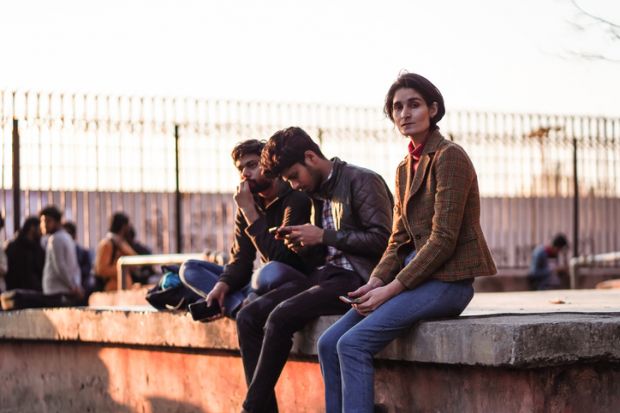A leading private university in India has agreed to conduct a “socio-economic survey” of its academic community after protests from students.
Existing laws in the country mean publicly funded universities must reserve places for students from lower castes, but the same rules do not apply to private institutions. At Ashoka University, situated on the outskirts of New Delhi, some students have called for this to change, starting with collecting data on how many people from each caste study and work there.
After two weeks of protests on campus by a student group calling themselves the Social Justice Forum, the university has confirmed that it will set up an Equal Opportunity Cell (EOC), which will include representatives from faculty, students and administrative staff.
“Among the activities of the EOC is a socio-economic survey, details of which are yet to be firmed up,” a representative from the university told Times Higher Education.
Writing on X, the Social Justice Forum said it had agreed with university leaders that the survey would include a mandatory question about constitutional caste categories.
It is not just universities that are under pressure to collect more data on caste. Calls for a nationwide census have grown louder in the run-up to India’s general election, with the opposition backing such a policy in a bid to reduce inequality in the country. Prime Minister Narendra Modi, however, has previously criticised leaders of the Indian state of Bihar for collecting and publishing caste data on the region, accusing them of “trying to divide the country”.
Bharat Rathod, an assistant director at the University of Massachusetts Amherst, who researches caste conflict on Indian campuses, said: “Modi and the [Hindu nationalist paramilitary organisation] RSS will not take any chance or will not tolerate any kind of awareness on this issue.” He explained that he felt it threatened to undermine the ruling party’s Hindutva ideology.
He added that universities that did implement caste censuses could find themselves under fire from the BJP and its supporters. At Ashoka, the protesting students have already faced criticism online for reverse casteism against the upper classes.
Despite this, Mr Rathod said, the success of such protests might motivate more student groups and activists to campaign for similar policies at other private universities, the number of which have grown significantly in recent years.
“This kind of demand and protest, which is widely noticed and widely circulated on social media, really created a buzz,” he said.
More than 140 new private universities have been established in India over the last five years, but there is little information available about the representation of different castes in these institutions, according to Yashwant Zagade, a PhD candidate at the Tata Institute of Social Sciences. “We don’t know who is getting admissions [or] who is faculty,” he said.
But, he added, new laws like the ones that apply to public institutions were needed in order for private universities as a whole to implement affirmative action policies supportive of lower castes.
“It would be too much from private universities to expect that they come up with such policies in the absence of government laws,” he said.
Register to continue
Why register?
- Registration is free and only takes a moment
- Once registered, you can read 3 articles a month
- Sign up for our newsletter
Subscribe
Or subscribe for unlimited access to:
- Unlimited access to news, views, insights & reviews
- Digital editions
- Digital access to THE’s university and college rankings analysis
Already registered or a current subscriber? Login








